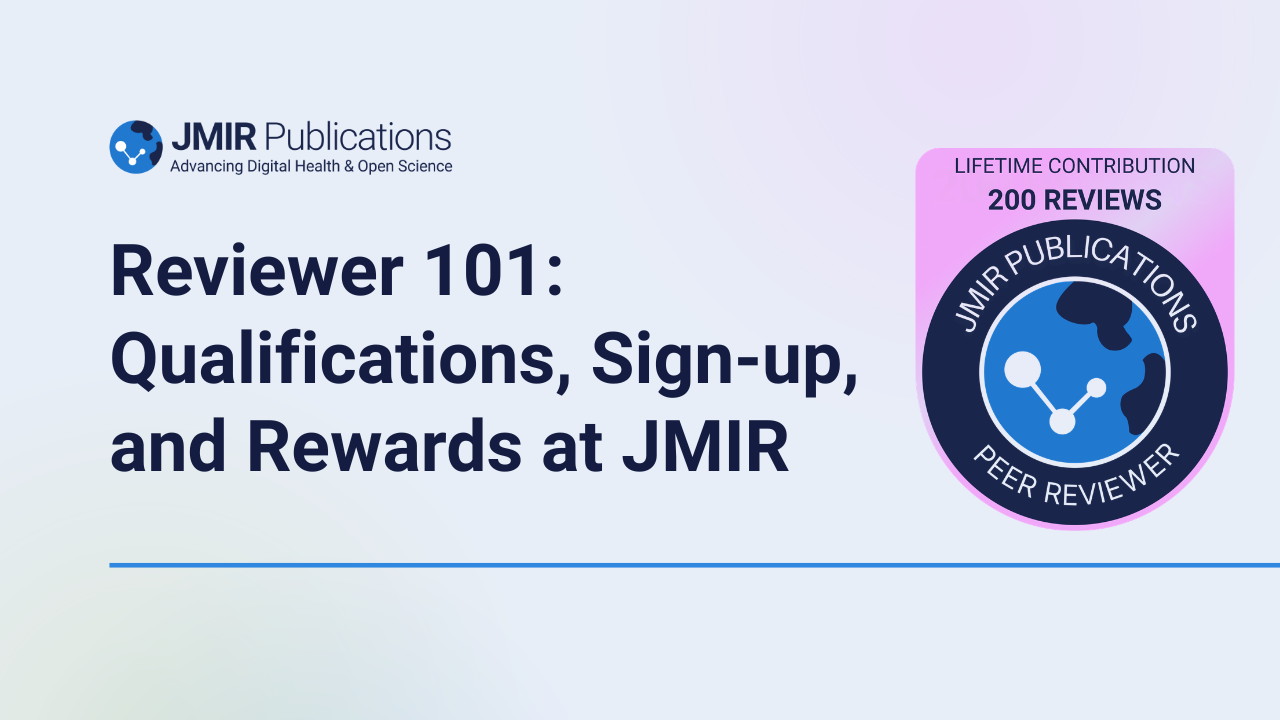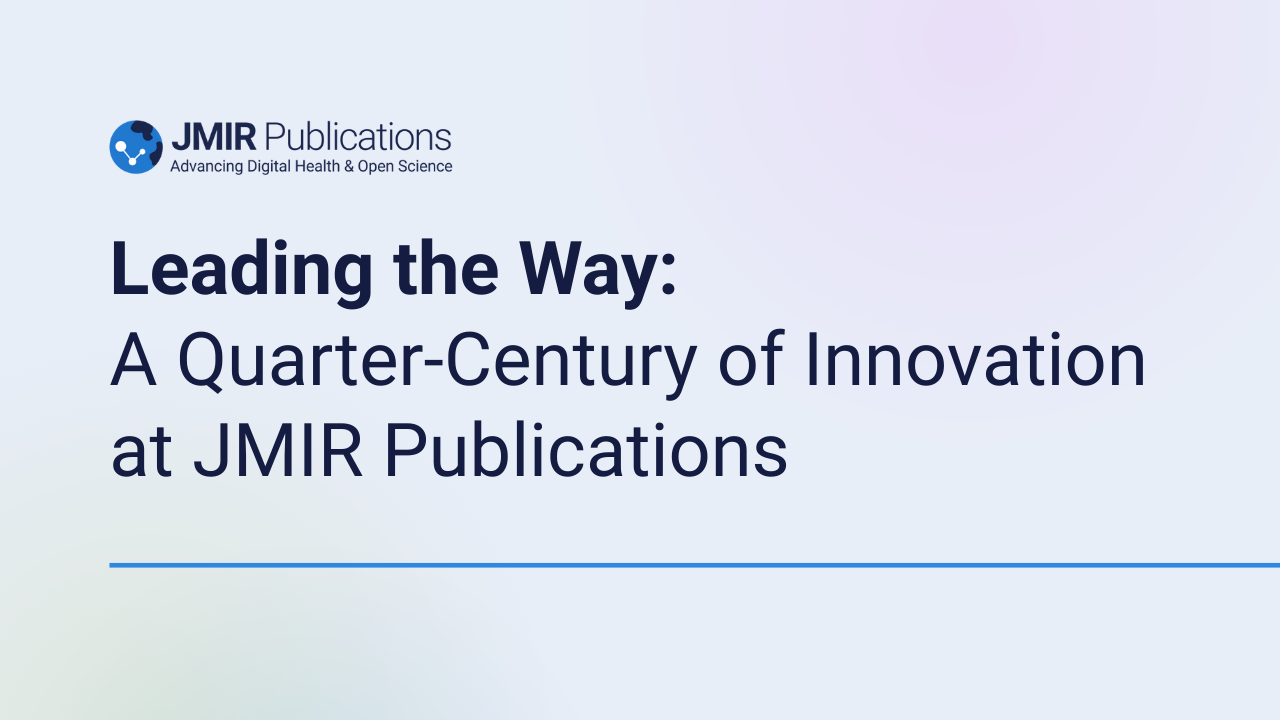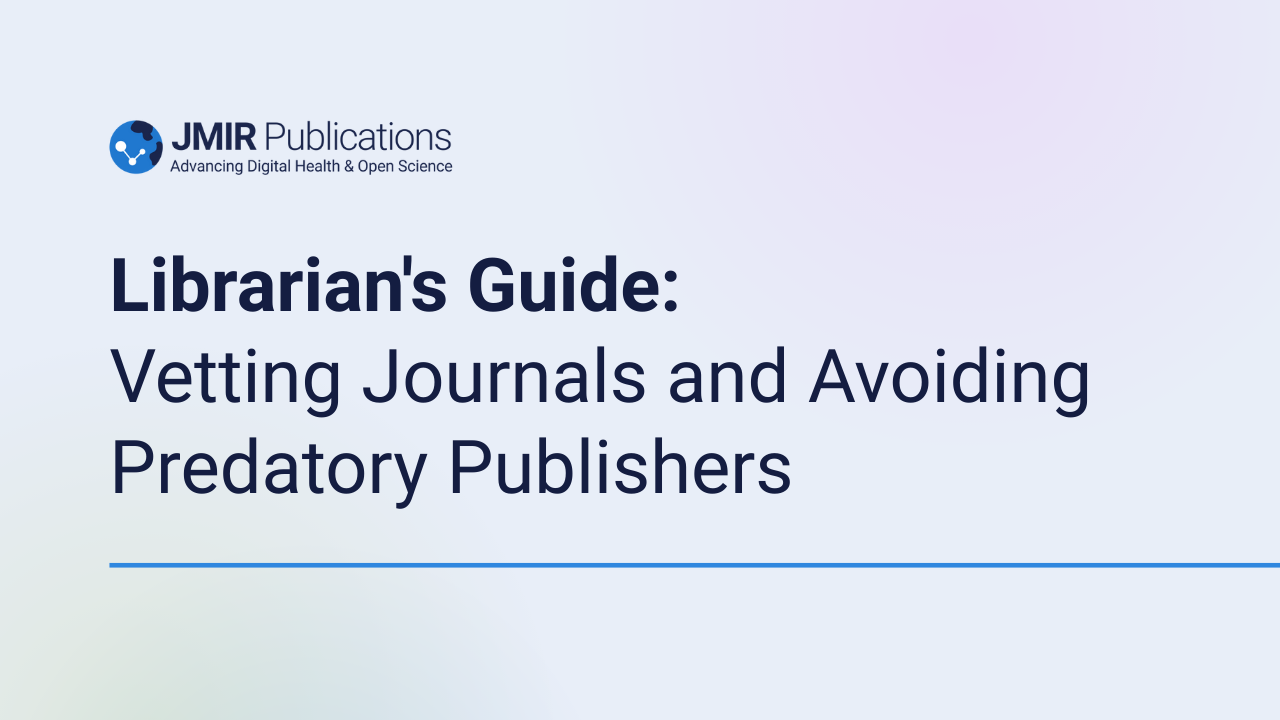.png)
JMIR Publications
Newsroom
.png)

Reviewer 101: Qualifications, Sign-up, and Rewards at JMIR
Whenever the JMIR Publications team travels to conferences—like APHA or the American Medical Informatics Association (AMIA)—we are inevitably asked one question more than any other: "How can I become a peer reviewer for JMIR, and what qualifications do I need?"

3 Conversations I Can’t Wait to Have at ER&L
As I am preparing for my trip to Austin for the ER and L conference, I am thinking a lot about the conversations I have had with librarians over the past year, especially at Charleston in November. The consistent theme of each conversation was uncertainty—often budgetary, but also regulatory and administrative. Everywhere, libraries are under pressure to do more with less, leaving many to ask: how to manage library budget cuts while transitioning to open access? It’s clear that librarians are no longer just managing collections; they’re navigating a total systemic shift.

Leading the Way: A Quarter-Century of Innovation at JMIR Publications
Since its inception in 1999, JMIR Publications has been more than just a publisher—it has been a laboratory for the future of scholarly communication. As one of the world's first open-access publishers, JMIR has consistently pushed the boundaries of how scientific knowledge is captured, shared, and preserved.
.png)
Beyond the Big Deals: Partnerships for Equity & Impact in Open Access
If you were in Charleston this past November, you know what I mean when I say the air was thick with purpose, and a little bit of worry. The Charleston Conference is always a place where librarians and publishers come together to discuss the tough questions facing our industry, and this year highlighted that scholarly communication is evolving against a backdrop of economic, technological, and policy-driven uncertainty.

Librarian's Guide: Vetting Journals and Avoiding Predatory Publishers
The landscape of scholarly publishing has grown increasingly complex, and academic librarians managing collections face mounting pressure to navigate this complexity wisely. With library budgets stretched thin, multiple business models competing for resources, and the ever-present threat of predatory publishers exploiting the open access movement, the responsibility of vetting journals has never been more critical, or more challenging.
.png)
Celebrating our Author Videos: Key Themes in Author Videos
As we close out another banner year at JMIR Publications, we’re taking a moment to celebrate the incredible growth of our YouTube community. In 2025, our mission to make high-impact research accessible reached new heights through our video series:Decoding Digital Health: Author Stories.

Reflecting on 2025: A Landmark Year for "Decoding Digital Health"
As we close out another banner year at JMIR Publications, we’re taking a moment to celebrate the incredible growth of our YouTube community. In 2025, our mission to make high-impact research accessible reached new heights through our flagship playlist:Decoding Digital Health: Author Stories.

fhir4pharma: Digitalizing Clinical Trial Protocols with FHIR
Clinical trials rely heavily on the Schedule of Activities (SoAs), the detailed roadmap that dictates what data must be collected and precisely when. Traditionally, this roadmap is presented as a static, tabular chart within the study protocol. However, real-world research is rarely static. Patients miss visits, unexpected events occur, and complex study designs (like in oncology) require multiple treatment cycles and conditional branching.

Synthetic Data: Solving the Clinical Trial Privacy Paradox
The foundation of modern, data-driven medicine rests on high-quality empirical evidence, primarily derived from Randomized Clinical Trials (RCTs). However, sharing the individual patient data (IPD) from these trials is heavily restricted by regulatory frameworks. For example, the EU’s General Data Protection Regulation (GDPR) which aims to protect patient privacy. This "privacy paradox" can hinder innovation, preventing researchers from reusing valuable data to develop predictive models or external control arms.
